Allergic pollinosis, male in his 30s -Case report of fecal microflora transplantation
summary
She applied for transplantation to improve her hay fever symptoms, which began 10 years ago and have been worsening for the past 7 years. Transplantation was performed 3 times on 23.12.2019, 25.12.2019 and 10.1.2020. The patient returned to the hospital 2 weeks after the transplantation. She has already experienced hay fever symptoms, and no change from previous years, so she does not feel any effect so far.Basic Information
| Patients : | 30’s Male |
| Attending physician : | Medical Corporation Sakurashinkai Sante Clinic |
| Medical institution in charge of transplantation : | Medical Corporation Sakurashinkai Sante Clinic |
Information at the time of initial medical examination
| Disease name : | Allergy/Hay fever |
| At onset : | About 10 years ago |
| Transplant Purpose: To | Improvement of symptoms described in the disease |
| Chief complaint : | He has been suffering from hay fever for 10 years. 7 years ago, his symptoms started to worsen. 2016-2018, sublingual immunotherapy was performed but there was no improvement. Recently, she evacuates to Okinawa and other places during hay fever season. Symptoms are mainly pharyngeal and ocular symptoms. Rhinitis symptoms are weak. |
| Medications being taken : | Antiallergic (details unknown) |
| Medical history : | Appendicitis at age 10. |
| Background, family history, lifestyle, supplement use, etc : | Lactobacillus supplements |
Transplant Information
| Transplantation period: from | December 23, 2019 – January 10, 2020 |
| Number of transplants : | 3 times |
| Change from first transplant to end of transplant : |
| 【1st transplantation questionnaire】 No abdominal symptoms. 【2nd transplantation questionnaire】 No abdominal symptoms, no trouble Immediately after the last transplant, I had loose stools, but after that, I had normal hard stools 2 to 3 times a day yesterday and today. I take care of my sleep and exercise. 【3rd transplantation questionnaire】 No abdominal symptoms No trouble No change in symptoms |
| Changes after completion of transplant : |
| Now following |
Evaluation and Discussion
| Transplant Evaluation : | None in particular. |
| Pre- and post-transplant flora balance test changes : |
A larger percentage cannot be classified as Other, and the diversity of intestinal flora is low.
The ideal ratio of C-cluster IX to C-cluster XIVab is 1:4 from a mental point of view, but the ratio of XIVab is higher at 1:9.
The detection of Equol-producing bacteria (tissue regeneration), C cluster 11, and XV (inflammatory response) suggests acute inflammation, and the percentage of C cluster XIVab may be high to maintain that immune tolerance state.
Also, I understand that you have had appendicitis.
The appendix is the organ responsible for intestinal immunity (IgA) and affects the bacterial flora balance. Damage to the appendix may result in an inadequate intestinal barrier and cause the preceding inflammation.
Hence, intestinal damage may cause inadequate immune tolerance, which may be the cause of uncontrolled allergic reactions. |
| Blood test changes : | under inspection |
| POMS2 SCORE CHANGE : | under inspection |
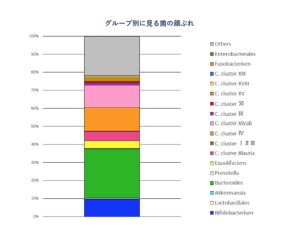 <Intestinal flora balance Post-transplant data>
<Intestinal flora balance Post-transplant data>
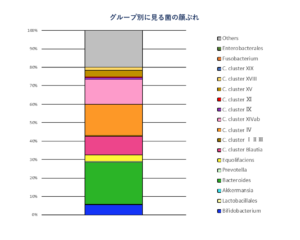
| His/her experience (from the questionnaire) : |
| under request |
| Adverse events: No |
| Nothing |
| Transplant General Comments and Discussion : |
| Symptoms of hay fever have already appeared, and the patient is currently unaware of any changes after transplantation. Since the hay fever season will be in full swing from now on, follow-up observation is necessary to determine changes in symptoms. |
Return to Top of Case Studies
その他の Intestinal flora transplantation and case studies に関する記事
Articles about other Intestinal flora transplantation and case studies
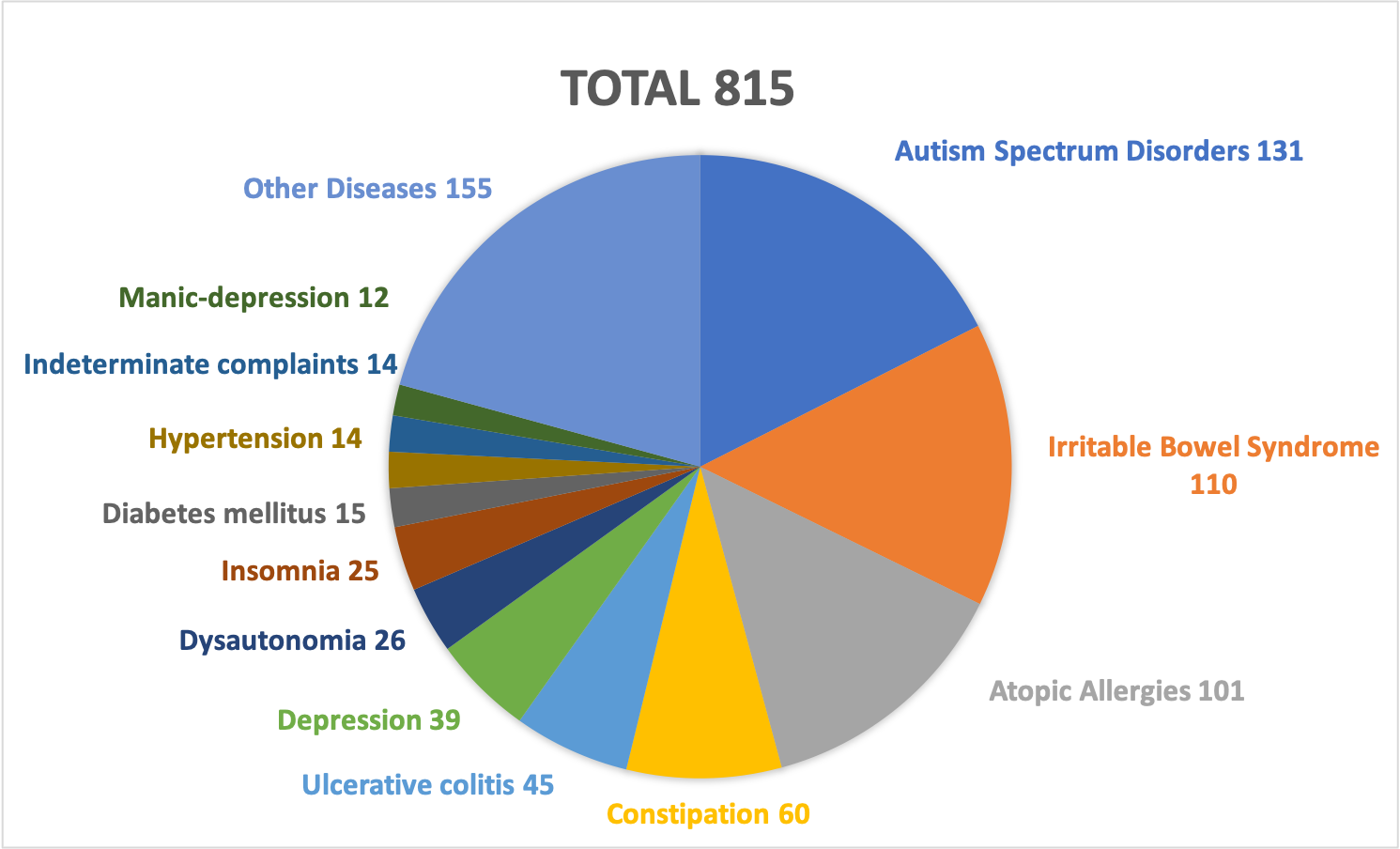
April 08, 2024
Fecal microbiota transplantation results〈as of April 1, 2024〉
Fecal microbiota transplantation results by case in our study group (as of April 1, 2024)
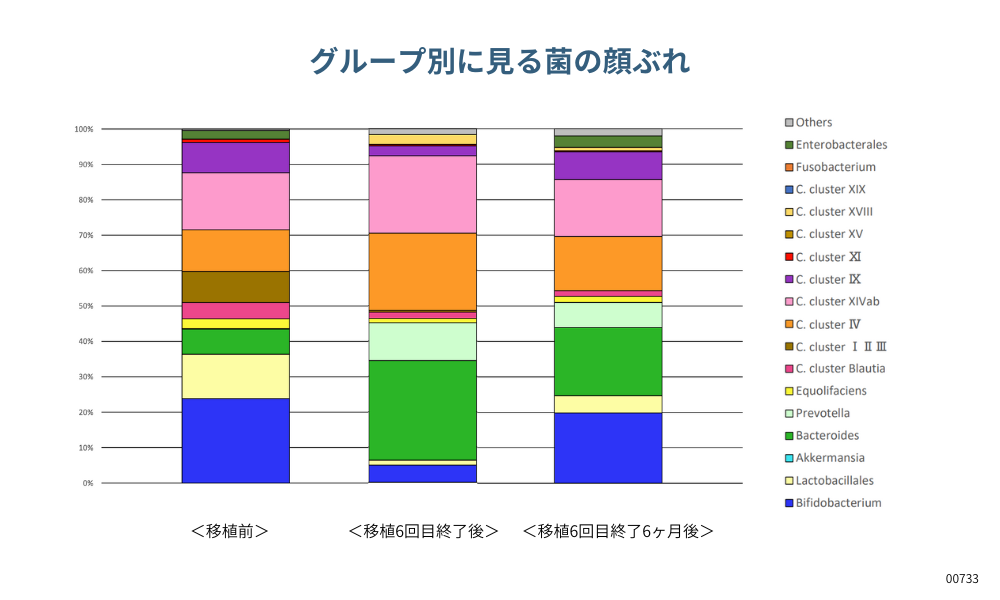
April 08, 2024
Fecal microbiota transplantation in a 50-year-old woman with ulcerative colitis
Introduction of cases 50th generation women Ulcerative colitis summary FMT for ulcerative colitis (UC). After starting FMT, he developed appendicitis, which was relieved by antibiotics. Thereafter, he had a temporary exacerbation (hemorrhage), but gradually improved, which was considered effective for UC. Basic Information Patients : Woman in her 50s Attending physician : Luke’s Ashiya Clinic […]
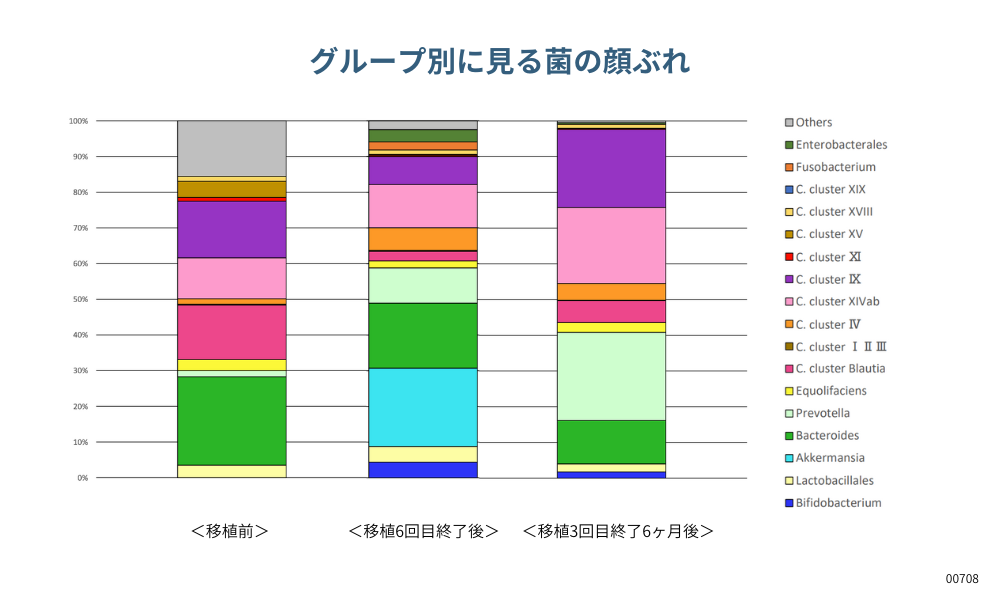
April 08, 2024
Ulcerative colitis (IBS) and small intestinal bacterial growth (SIBO) in a man in his 50s -Case report of fecal microbiota transplantation
Case presentation Male in his 50s with ulcerative colitis (IBS) and small intestinal bacterial growth (SIBO) summary After three transplants, the patient’s symptoms improved slightly, but he is still not satisfied with the results. Basic Information Patients : Male in his 50s Attending physician : Luke’s Ashiya Clinic Medical institution in charge of transplantation : […]





